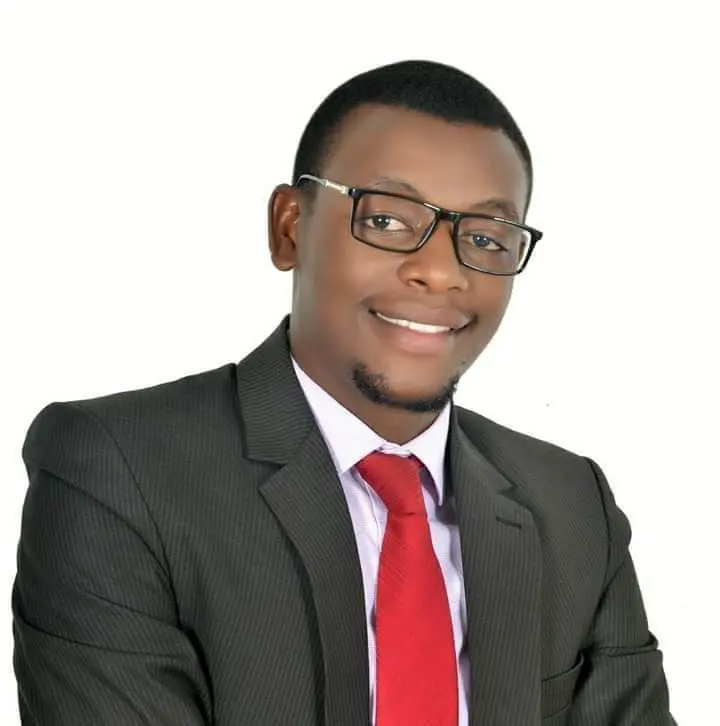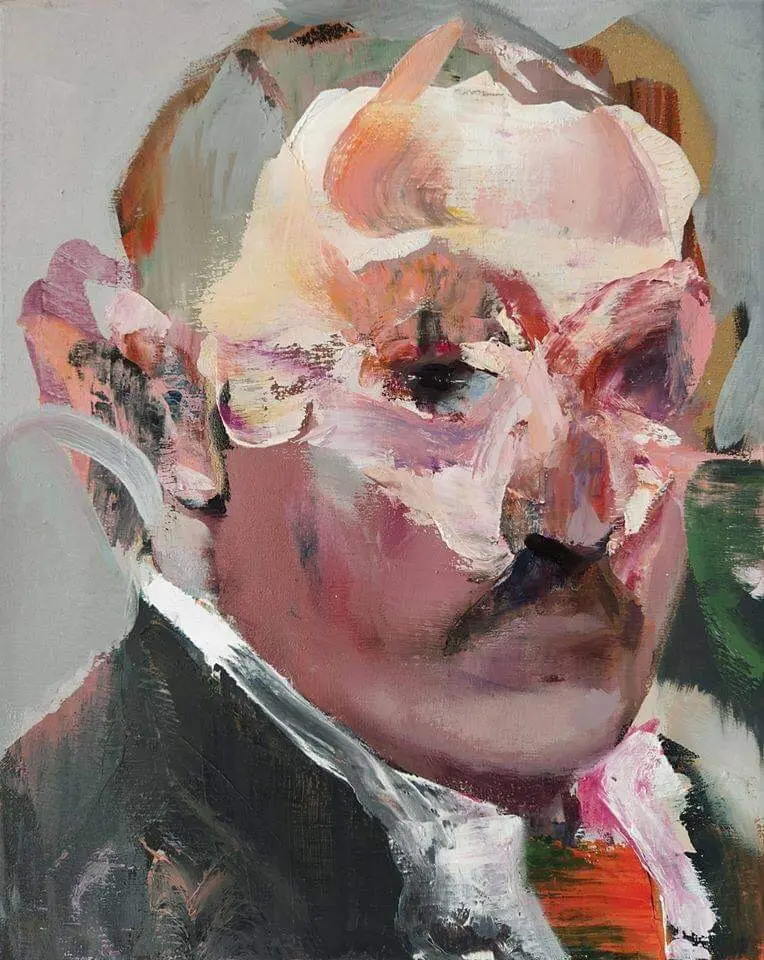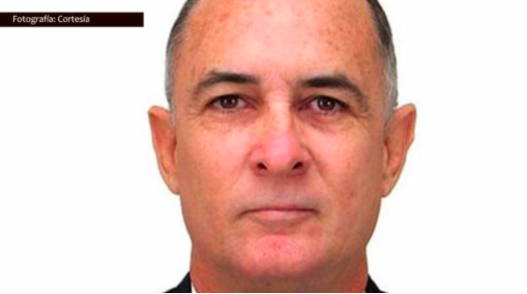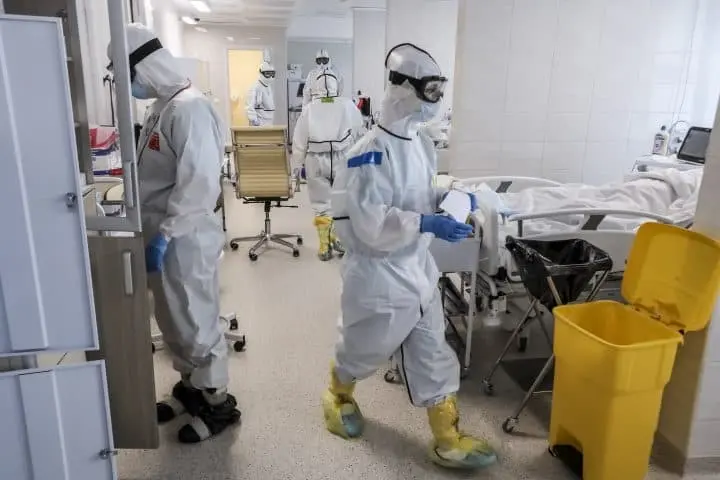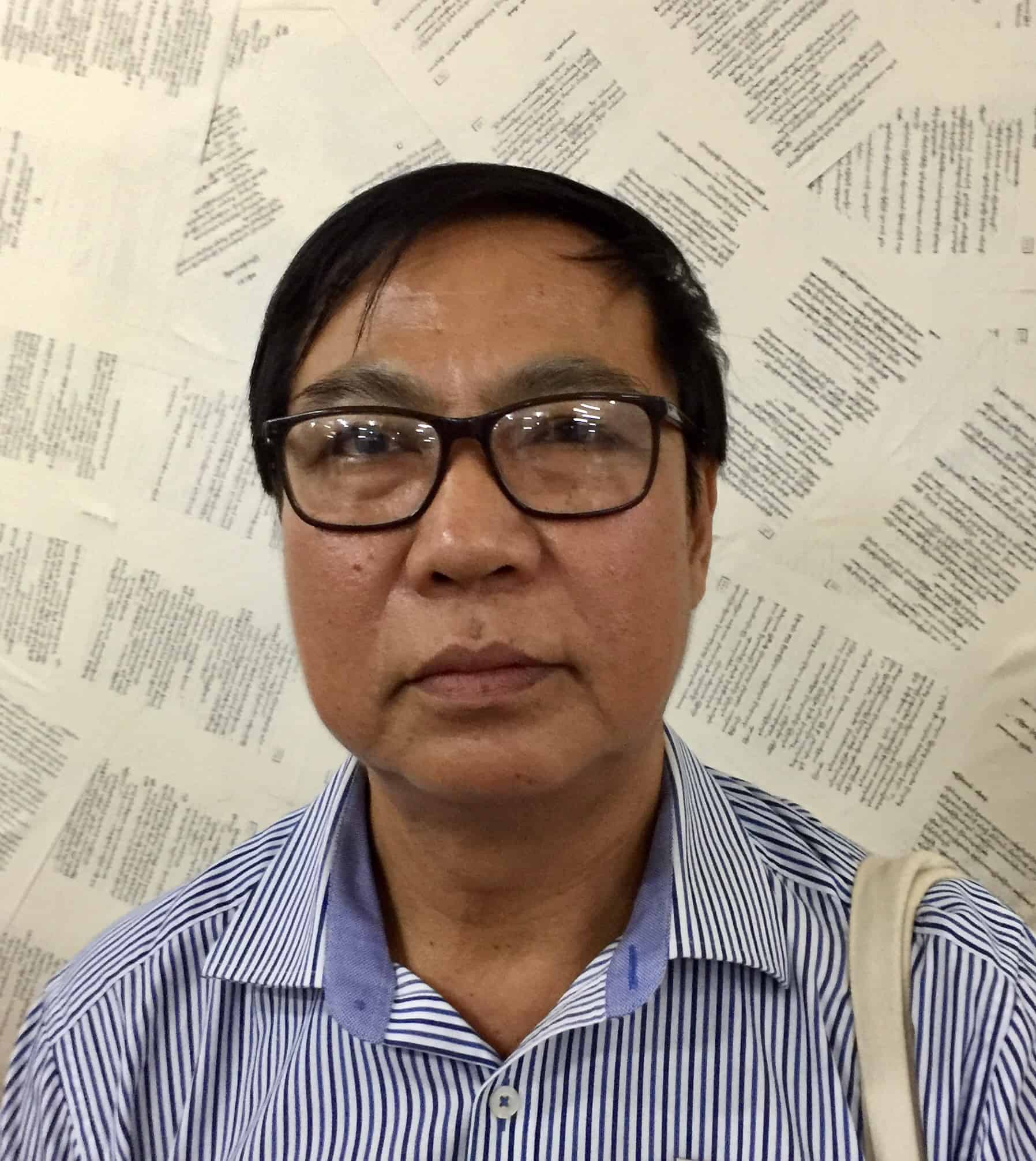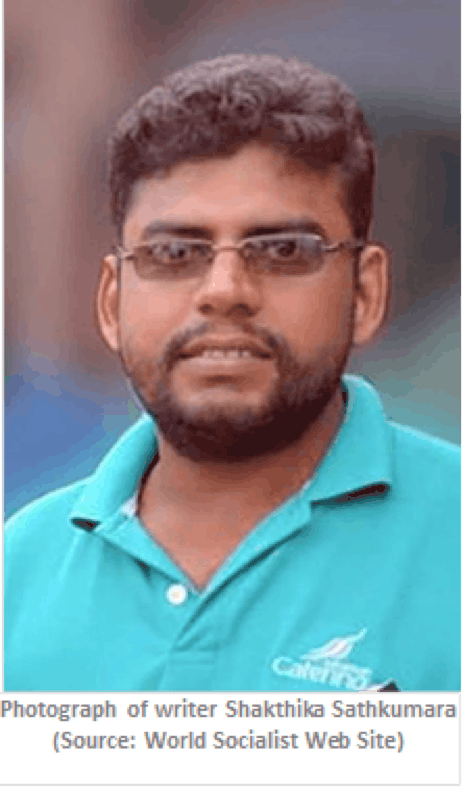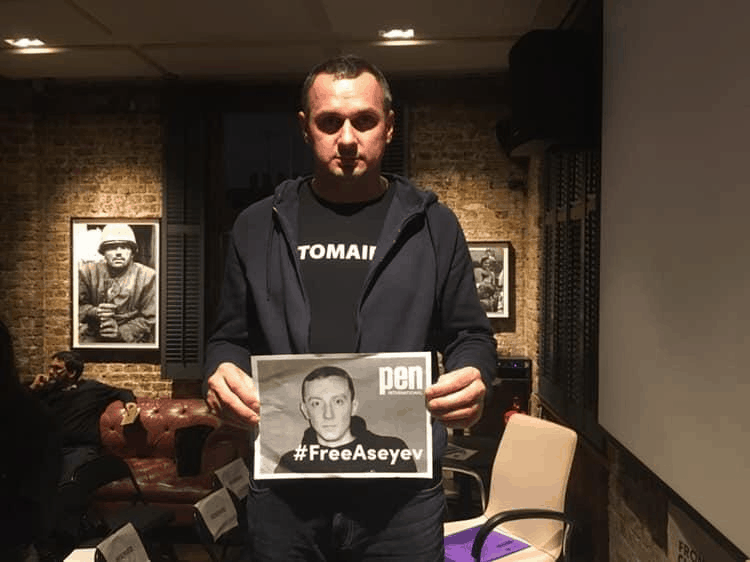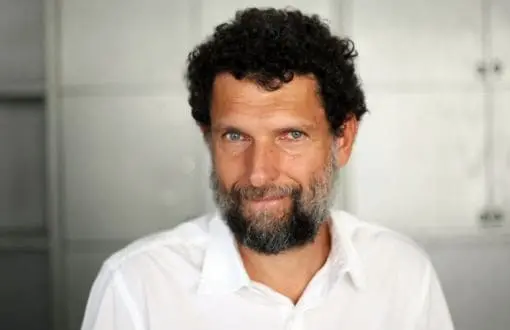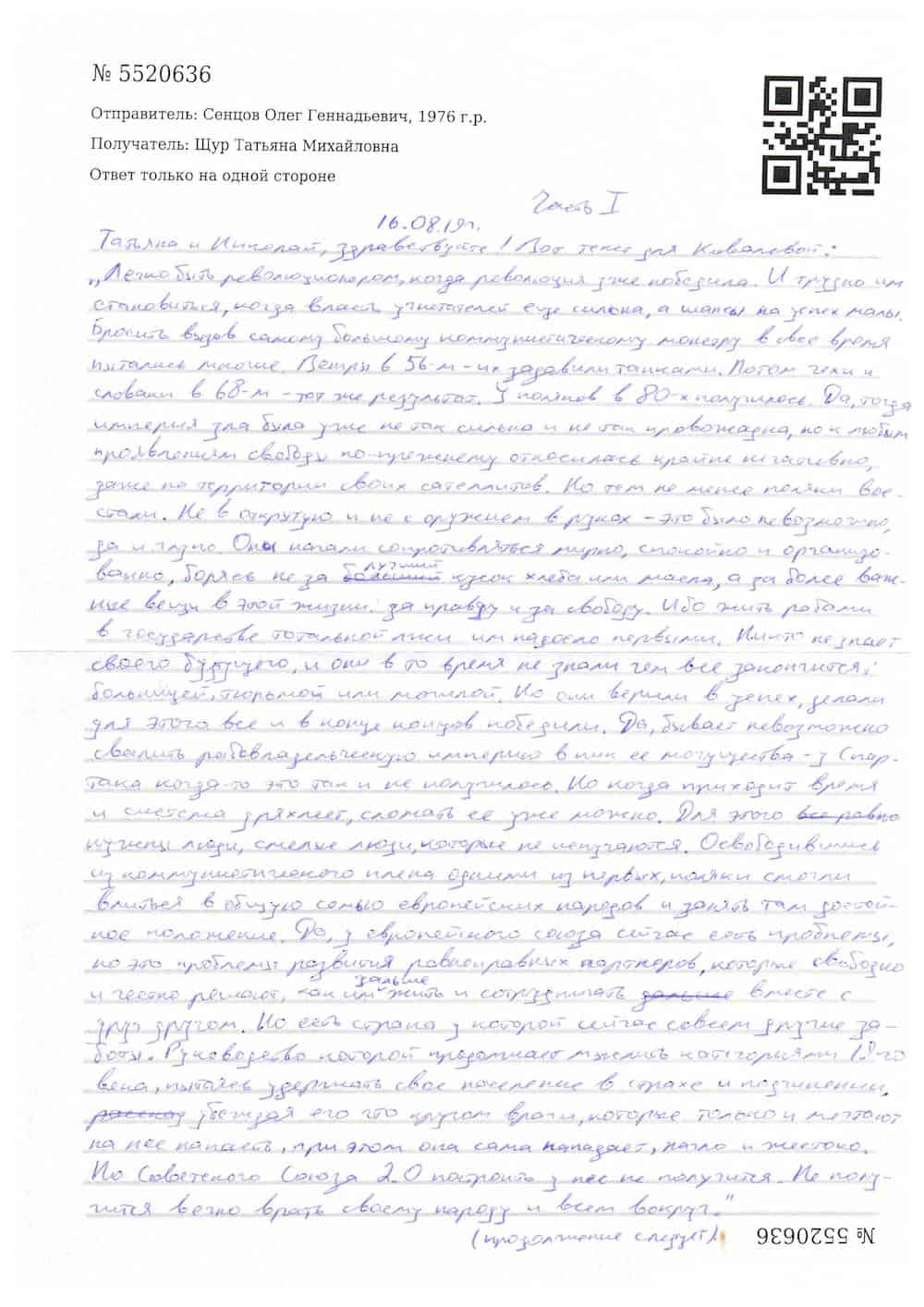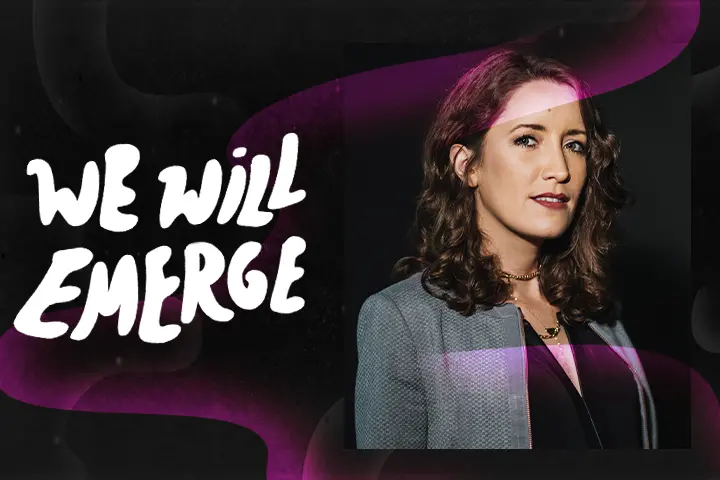
This essay is part of PEN America’s We Will Emerge project, a collection of essays speaking directly to voters around the country in advance of the U.S. election. This project is made possible with the support of Pop Culture Collaborative’s Becoming America Fund.
LISTEN TO JEAN GUERRERO READ HER ESSAY
Whenever I misbehaved as a child, my Puerto Rican abuela blamed the Mexican in me. My Mexican classmates called me gringa. My gringa came from my mom, who spoke English with a Puerto Rican accent. I did not know what I was. You’re American, my mother said. You’re not Mexican. You’re not Puerto Rican. You’re American.
We lived near the border in San Diego, California. She wanted me to feel I belonged in this country—a sense she’d been repeatedly denied. My mother faced discrimination as an MD after she came to the mainland. She had put herself through medical school by joining the National Health Service Corps. For most of her career, she was paid less than white colleagues who had barely finished their residencies. But she believed in the promise of the United States.
I’m a doctor and a U.S. citizen, she told the U.S. customs officers who threatened to slice open her car seats in search of drugs when she was returning after a trip to Tijuana with my father, an immigrant from Mexico with a green card. She wielded her citizenship like a shield, tenuous as it felt against an ever-present danger. Puerto Ricans are U.S. citizens, my mother would say, with conviction. Because of my mother’s body armor, I did not identify as Latina as a child, though we had piñatas at our birthdays and ate arroz con gandules at home.
Back then, California was a microcosm for the resurgence of white supremacy we are seeing nationally today, causing Latin American families to hide their brown or Blackness behind labels like Hispanic. In the nineties, a white backlash against the “browning” of the state manifested as bipartisan attacks on bilingual education, affirmative action, and state-funded services for people without legal immigration status. Neo-Nazi groups multiplied. The governor spoke of a Mexican “invasion.” The idea that multiculturalism was a threat to civilization spread like a virus on right-wing talk radio.
It wasn’t until years later that I realized American identity does not need to function like a sword hacking away at our differences, or a snake digesting them. In his 1996 book The Coming White Minority, Dale Maharidge explores the view that multiculturalism presents “two stark choices: the United States sticks with a white-centered melting pot, or degenerates into separate conflicting societies.” He reveals an alternative to assimilation. He quotes a researcher who imagines it as “a continuous cauldron of activity, rebirth, reformulation.”
“Multiculturalism is not a threat to civilization. The only thing it threatens is extremism. As America becomes more mixed, we will have a greater capacity for empathy. People with hyphenated identities are familiar with multiple ways of being; thus, they can readily inhabit different people and diverse realities.”
Multiculturalism is not a threat to civilization. The only thing it threatens is extremism. As America becomes more mixed, we will have a greater capacity for empathy. People with hyphenated identities are familiar with multiple ways of being; thus, they can readily inhabit different people and diverse realities. It seems so obvious now as I sit on the grass with my five-year-old niece, who is Mexican, Puerto Rican, Black, and American, fluent in Spanglish and Shel Silverstein. I teach her about electromagnetism with a lab kit I purchased to pass time in the pandemic. In her unicorn pajamas, she attaches wires to battery terminals and tiny bulbs alight. A delighted smile grows on her chestnut face; her curls glow in the sun. She intuitively grasps that opposites attract; uniting them can create continuity and cohesion.
We play with magnets and parallel circuits. Her multiculturalism strikes me as the opposite of a threat. Perhaps it is even a superpower: the ability to move between worlds, between countries, between points of view—what we need to save the country.
Americans are losing our collective sanity due to a breakdown in our willingness to communicate with one another. We are trapped in echo chambers. Corporations shape our politics, purchases, and preferences with disinformation and AI-based advertisements. Polarization is profitable, so the powerful have no incentives to unite us. The threat of domestic terrorism is escalating as people fall into post-truth rabbit holes such as QAnon and white genocide. Democracy is in danger.
Maybe you’re a third-generation immigrant like my niece, or a first or second one. Either way, you have it, too: the magic that might save us. Perhaps you were taught to reject your mestizaje. But it is what allows you to imagine and bring forth a world without binaries: blurry and multitudinous, like you. You can heal a divided nation.
Consider the human brain. It is divided into two hemispheres. Nerves crisscross up and down each side of the body to the opposite side of the brain. The hemispheres communicate through a tangle of nerve fibers, the corpus callosum—a bridge that coheres the mind.
According to the bicameral mind theory, our ancestors’ brains were not fully integrated via this bridge. They perceived their own thoughts as external—as the voices of gods. They lacked agency, jerked around by hallucinations. “We could say that before the second millennium B.C., everyone was schizophrenic,” wrote the psychologist Julian Jaynes. But then the branches of the corpus callosum multiplied. The two halves of the brain integrated. We recognized the voices in our head for what they were: our own thoughts. We gained agency.
Some people called you a half-breed, a wetback, a beaner. They made you feel like a mutant. You have the blood of the colonizer and the colonized. You are the bridge that can make America sane again.
I was 13 during the 9/11 terrorist attacks. I watched the Twin Towers fall on TV from San Diego. A Jewish teenager named Stephen Miller watched from two hours north of me. Later, he would become Trump’s senior advisor and speechwriter and I would write a book about him. Meanwhile, he demanded that his school recite the Pledge of Allegiance. I painted U.S. flags on my face. I awoke at dawn to be in a massive human flag at Qualcomm Stadium. For Halloween, I wrapped myself in red, white, and blue as a U.S. cheerleader.
My mother told me that Papi’s country, which we had visited regularly to go to abuela’s house or the playas, was a dangerous place and we could not go anymore. She and Papi had split up when I was six; he later heard voices in his head. My mother said he had schizophrenia. The word comes from the Latin schizo: to split, to divide, to cleave.
I cut open my wrists with a razor. In retrospect I wonder: was it the sword of racist patriotism working in me? I sought to make visible a rupture I felt in my own blood. I took the trolley to the end of the country and crossed the border on foot. I took photos of Papi’s old neighborhood near Avenida Revolución, a gypsy with thick black eyeliner, a man with dirt in his wrinkles and copper irises—like Papi.
When I wrote about my father and my fear of losing my mind in high school, my English teacher suggested that I consider a career as a journalist. Journalism instructs in skepticism, primary sources, and documents, fact-checking and resisting the spell of a single source. It is supposed to be a pillar of democracy—the system by which a nation maintains its agency, or sanity. Journalists are trained to admit error, to correct the record, to update and clarify meaning.
I got into journalism school. I learned the hunt for the five Ws: who, what, when, where, why. I read about confirmation bias, the human tendency to ignore evidence that contradicts what we want to believe. A reporter must be ever-vigilant against this, constantly questioning evidence and cultivating a willingness to discard information that cannot be corroborated. She must be the opposite of an ideologue.
For my 20th birthday in my abuela’s backyard, I saw my father for the first time in years. A mariachi band performed “El Rey,” a popular Mexican song about a man who can do whatever he wants and still be a king: “Con dinero y sin dinero, yo hago siempre lo que quiero.” Papi dragged a plastic chair beside me. He leaned in close and began to confide in me for the first time in my life.
During the years he had been gone, he said, he had been traveling across the world fleeing the CIA. They followed in SUVs with U.S. license plates, beaming voices into his head and electric shocks into his body—experimenting on him with remote-controlled mind control weapons. He found an online community of thousands of individuals with stories like his: “Targeted Individuals.”
I stared at my father in mute shock, not wanting to break the spell of his story. His eye contact was riveting, his limbs relaxed. I wanted to believe him. If my father’s tale was true, it meant he had been absent from my life not because he didn’t care about me, but because he was the victim of a government plot. But I’d learned about confirmation bias. Desire crafts conviction. We all want to believe we’re special.
For years, I followed Papi into his rabbit hole. I moved to Mexico City, his birthplace, for my first job as a correspondent. I sifted through his claims, filed records requests, typed notes. If I had not had the tools of my trade, I would have gotten lost in my father’s world. I almost did. Instead, I slowly untangled myself from him, eventually coming to terms with the fact that I would never really know who he was in what later became my memoir Crux.
“Americans are losing our collective sanity due to a breakdown in our willingness to communicate with one another. We are trapped in echo chambers.”
Journalism frees us from the paralysis of conviction. It is a never-ending renewal of records, “a continuous cauldron of activity, rebirth, reformulation,” like multiculturalism. It dwells in uncertainty. It explores contradictions. It honors change and opposing points of view. False balance, or bothsidesism, is one of the biggest mistakes journalists make: equating the voices of extremists with experts and first-hand witnesses. But insisting on a single truth is also flawed.
I didn’t have to see Papi as mentally ill, or as a victim of persecution. Both were reductive on their own. Together, they were more helpful. When I told my father that I discovered his great grandmother was a well-respected curandera in Zacatecas known as La Adivina who allegedly communed with the dead, Papi began to reimagine his past. He wondered if the CIA had really experimented on him. He planted a garden. He bred black soldier fly larvae for fertilizer. He made all-natural tinctures and powders to heal himself.
Multiculturalism, like journalism, paves a path toward discovery and renewal. It is the root of empathy; it will spell the death of tribalism. It is the seed of all connection, compromise, and communication.
My niece was born into a rupturing world, but she is only afraid if I am. I pass bravery into her body through mine, like a current. She sits on my paddleboard as we paddle over the San Diego Bay under the Coronado Bridge. We are trying to forget that the world is in danger for a little while. But the water is surprisingly turbulent; a speedboat made a violent wake. Hang on, I say as a hefty wave barrels toward us.
I’m scared, she says. Are we going to be okay, titi?
Yes, I say.
She gasps in relief and revelation. The waves have changed in nature before her eyes: from a threat that might sink us, into friends that will carry us forward. She cries, The waves nos están flotando! They reach for and pass under us, buoying us into the sky.
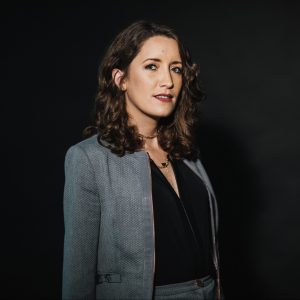 Jean Guerrero is an award-winning investigative journalist and author of Hatemonger: Stephen Miller, Donald Trump and the White Nationalist Agenda. Her first book, Crux: A Cross-Border Memoir, won a PEN/Fusion Emerging Writers Award. Her writing is featured in The Best American Essays 2019. She is an Emmy-winning border reporter, contributing to NPR, the PBS NewsHour, and more. Months before President Trump’s family separations captured national attention, her reporting on the practice was cited by members of Congress. She started her career at The Wall Street Journal and Dow Jones newswires as a foreign correspondent in Mexico and Central America, trekking through mountains with coffee smugglers, opium poppy producers, and more. She was named the 2019 Journalist of the Year by the San Diego chapter of the Society for Professional Journalists and one of the California Chicano News Media Association’s most influential Latina journalists in the region.
Jean Guerrero is an award-winning investigative journalist and author of Hatemonger: Stephen Miller, Donald Trump and the White Nationalist Agenda. Her first book, Crux: A Cross-Border Memoir, won a PEN/Fusion Emerging Writers Award. Her writing is featured in The Best American Essays 2019. She is an Emmy-winning border reporter, contributing to NPR, the PBS NewsHour, and more. Months before President Trump’s family separations captured national attention, her reporting on the practice was cited by members of Congress. She started her career at The Wall Street Journal and Dow Jones newswires as a foreign correspondent in Mexico and Central America, trekking through mountains with coffee smugglers, opium poppy producers, and more. She was named the 2019 Journalist of the Year by the San Diego chapter of the Society for Professional Journalists and one of the California Chicano News Media Association’s most influential Latina journalists in the region.

